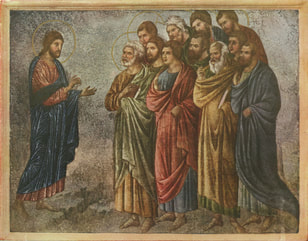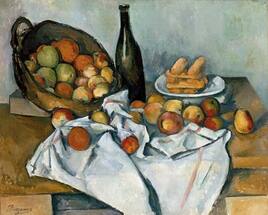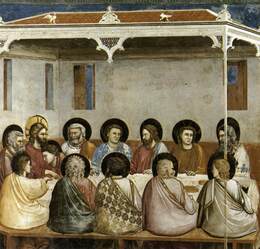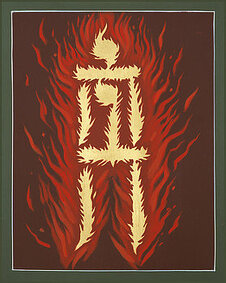 we are meant to be stewards we are meant to be stewards Something that most of us consider ‘uncouth’ is the practice of re-gifting, that is, receiving an item that is not liked and passing it on to someone else. This action is actually neither good nor bad, but it is our intention that renders it one way or the other. If the object being passed along is thought of as something that the other really would like, then it could be an excellent choice for giving. If it is simply to rid ourselves of something with absolutely no thought of the other, or to simply fill an obligation to give, then our motives are tacky at best, self-serving at worst. However, in the spiritual life re-gifting is not only considered a good thing, it is encouraged! Jesus taught that what we receive is supposed to be passed on. Holding possessively onto the gifts God gives means we have missed the key point in Jesus’ teaching (love); it is to misunderstand God’s gifts and graces, that they are not meant for us to possess, but rather to nurture, to learn from, and then to pass on to our brothers and sisters. In truth, we possess nothing, not even our own lives, but rather, through our Baptism we belong to the Lord as His adopted sons and daughters.* Rather than possessing anything, we are meant to be the stewards of what God gives and all is meant to be shared. That is to say, what we receive as a gift, we are to give as a gift.  without cost you are to give without cost you are to give A truth by which we should live is found in Jesus’ second discourse in Matthew’s Gospel: “Without cost you have received; without cost you are to give.” When He commissioned them to go forth, Jesus told the Twelve to proclaim that the Kingdom of God is at hand. “Cure the sick, raise the dead, cleanse lepers, drive out demons.” (Matthew 10:5-8) Jesus also said to take no money, sack, second tunic, or walking stick as they traversed the countryside sharing the Good News in word and deed. For us as for them, to go forth in this way requires two things: a deep trust in God, and that what we are given is not meant to be held on to, but to be shared or given away. This truth incorporates the entirety of the Gospel and the life of Jesus: He held on to nothing and neither should His disciples. Remember that a short time before commissioning the Twelve He had said, “The Son of Man has nowhere to lay His head” (Matthew 8:20), indicating that just as He laid everything down, we should be willing to let go of whatever we have, even to laying down our desires, our own will, and perhaps even our life.  offering mercy as we have received mercy offering mercy as we have received mercy As we grow spiritually we receive many gifts in the form of graces. These are intended to help us grow closer to the Lord, and therefore, to grow in holiness expressed through our movement outward to others in service. Thus, we share our time, talent, and treasure which becomes especially beneficial if we give sacrificially. This means that rather than only giving of our surplus, we sacrifice in a greater (more ‘heroic’) way, as Jesus would.** This includes more than material things, but also comprises our behaviors: respect for everyone including those who act as enemies, forgiving as we have been forgiven, listening as we have been listened to, serving as we have been served, offering mercy as we have received mercy, living justly with peace, and things of this sort. It is even greater if we offer these to those who are unable or even unwilling to return them to us; that is, the most sacrificial gifts are those given when there is no possibility of return whatsoever. To give in this way is to make a pure offering of love.  the art of giving always includes knowing how to receive the art of giving always includes knowing how to receive Giving what we have received is actually an expression of gratitude to God. In thanksgiving to Him we return a portion, so to speak, by offering what we have received to others. However, to truly understand giving we must look at the often overlooked ‘art’ of being a good receiver. It takes humility to receive. If we are going to offer our gifts, we must let others offer theirs to us as well. If we do not receive humbly, we will be robbing the other of their ability to serve the Lord through their offered gifts, just as we are hoping to offer ours. This includes receiving from God; many people mistakenly believe they are not worthy of God’s gifts and are therefore actually refusing them. The art of giving always includes knowing how to receive. In short, we are called to live in love, sharing mutually with one another, gratefully receiving and gratefully giving. (Acts 4:32-35)  gifts will be...overflowing... gifts will be...overflowing... Remember, we cannot give what we do not already have; we need to cultivate a relationship with God, approaching Him with an open heart and open arms in order to receive all that He wants to bestow. It is then that we can effectively go out to the world offering what we have received as gifts. And when we do this, our spiritual coffers will never be empty. Jesus said, “Give and gifts will be given to you; a good measure, packed together, shaken down, and overflowing, will be poured into your lap. For the measure with which you measure will in return be measured out to you.” (Luke 6:38) If we trust Jesus, our hearts will be filled with His love, an abundance that will increase as we share it with our neighbors. What we have received as a gift, let us give as a gift.  may we be generous givers and humble receivers may we be generous givers and humble receivers May we trust in the teaching and example of our Lord, entering more fully into discipleship through our receiving and our giving! May we be generous givers and humble receivers! And may we grow in holiness through the generosity of God’s love! Let us meet in the Heart of Jesus! Peace! ©Michele L. Catanese * The term "adopted sons and daughters" is about the change in our relationship with God that takes place when we are baptized. Adoption in this sense refers to the change in our fundamental relationship to one of deeper intimacy with God, as well as our new inclusion as members of the family we refer to as the Body of Christ. ** See what Jesus said of the widow in the Temple who gave two small coins in comparison to the wealthy Pharisees. (Luke 21:1-4) Images: 1. Painting; Cornucopia, artist unknown. 2. Painting; Jesus Missions the Apostles, by Duccio di Buoninsegna, (early 14th century) 3. My photo; while hiking in Colorado, near Silverthorne. 4. Icon; St. Martha of Bethany, by Fr. William Hart McNichols. One might think at first of Martha as being more of a doer than a receiver, but actually she learned from Jesus. Therefore, in my mind she is a patron not only of hospitality, but also of one who learned from this experience how to give generously so as to have open hands to receive from the Lord. You can find this icon at fineartamerica.com/featured/st-martha-of-bethany-william-hart-mcnichols.html 5. My photo; marketplace in Catania, in Sicily, Italy. 6. Painting; The Basket of Apples, by Paul Cézanne. (1895) Note: In compliance with GDPR rules, I wish to make it clear that I do not gather any information on any of my readers at any time.  love will grow richer and deeper love will grow richer and deeper For those who are news-weary it is always wonderful to discover an uplifting story about true love. Sometimes it is about a couple who have been married for upwards of 50 years, or perhaps it tells of two people who found each other again after being separated for almost a lifetime; at other times it is a story of heroic friendship. Whichever it is, stories of true love usually concern two people who make a commitment, whether through a covenant or friendship, and do everything they can do to uphold it. Of course, we know that the people involved are far from perfect, but that it is in their willingness to bring out the best in one another and to work together during challenges that they are able to persevere despite their individual imperfections. All of this takes a lot of work over time, but through it all, love will grow richer and deeper as the two people grow. It is no different in our most important relationship, the one we have with God, in which it is necessary to develop our commitment through time spent with Him learning to hear and discern, grow in graces, ask forgiveness and to accept mercy offered. God thirsts for us in ways we cannot imagine. That is, He wants nothing less than our heart.  humility, service, and love humility, service, and love Much has been written about how to develop a greater commitment to God and how to foster advancement in the spiritual life. The basics involve prayer, study, the Sacraments, keeping the Commandments, and working on humility, service, and love. However, rather than to emphasize our part, let’s reflect upon how God loves us. First, we must recognize that only God is capable of the true and perfect love of agape to which Jesus still wants us to aspire. That is, we can grow in love in incredible ways, but we will not love in the profoundly mysterious, complete way God does. This is not to say we should give up; on the contrary, growing in holiness and the spiritual life is our call and certainly God would not call us in this way if we had no chance at growth. While God’s mercy and forgiveness are greater than anything we can offer, His love is the basis of our inspiration to grow in love for Him in return.  love...is found in the Eucharist love...is found in the Eucharist To begin, let’s reflect upon the incomparable, unfathomable true love God gives. Above all, this is found in the Eucharist from which all other Sacraments flow. The Body, Blood, Soul, and Divinity of Jesus is available through the greatest act of mercy and love ever offered. Every time we receive it, Jesus says, “I love you.” He wants us to rest in that love, opening our hearts to Him. In the Sacrament of Reconciliation, through the absolution spoken by the priest, God says, “I am so glad you came, letting my mercy wipe clean the barriers and dirt that have accumulated. My child, I love you!” Likewise, the water of Baptism is the water of love. Though we may not have been able to ‘hear’ God’s voice with our ears, our hearts certainly heard: “My child, I love you.” When we read the Scriptures, every word and action of God contained there is God’s means of saying, “My children, I did all this because I love you.” When we go to Him in personal prayer and adoration, God says, “Thank you for wanting to spend time with me. I love you.” And finally as we grow in trust and the ability to see God in every stone, in every bit of nature, in people we encounter, that is, as we grow in holiness, we will better know it is God saying “I love you.” This includes the times of trouble, suffering, toil and pain: the more we learn to see and hear the ways God offers His love, the more we will recognize that He is with us especially in the most difficult of times.  the name of true love is God the name of true love is God The name of true love is God. St. John expresses this eloquently: “In this way the love of God was revealed to us: God sent His only Son into the world so that we might have life through Him. In this is love: not that we have loved God, but that He loved us and sent His Son as expiation for our sins…. God is love, and whoever remains in love remains in God and God in him.”(Full passage, 1 John 4:7-16) Further, St. Paul tells us that nothing can separate us from God’s love: “...neither death, nor life, nor angels, nor principalities, nor present things, nor future things, nor powers, nor height, nor depth, nor any other creature will be able to separate us from the love of God in Christ Jesus our Lord.” (Full passage Romans 8:28-39)  it is important that we learn to see and hear it is important that we learn to see and hear Let us pray with these and all of the passages of Scripture that speak to our hearts of God’s love. It is important that we consider the gifts that He offers daily, particularly those found in the liturgy, the Sacraments (especially Eucharist), in the lives of the saints, our brothers and sisters who are examples of the love of Christ, and through beauty. It is important that we learn to see and hear because God wants nothing less for us. It is in acknowledging His love that we will be inspired to grow in returning love, not as obligation, and not even due to our gratitude, (though that is important), but because our hearts are so overflowing with love for God, that we want nothing less than His Heart!  nothing less than HIs heart nothing less than HIs heart May we become more aware of the true and perfect love God has for us! May we be inspired by grace to grow in receiving and offering love to God! May we want to offer nothing less than our heart to God! And may we want nothing less than His Heart in turn! Let us meet in the Heart of our Lord! Peace! ©Michele L. Catanese Images: 1. My photo, Smoky Mountains, Tennessee. 2. Painting, Corporal Works of Mercy, artist unknown 3. Fresco Painting, The Last Supper, Giotto. 4. Image, Hebrew Name of Yahweh: Adam Kadmon, by Fr. William Hart McNichols. This is the Tetragrammaton (I AM WHO AM) with the Hebrew letters transposed over one another. If you wish to purchase a copy in one of many mediums, go to fineartamerica.com/featured/hebrew-name-of-yahweh-adam-kadmon-183-william-hart-mcnichols.html 5. My photo, taken from behind a waterfall in the Smoky Mountains. 6. Stained Glass, Sacred Heart of Jesus. Note: In compliance with GDPR rules, I wish to make it clear that I do not gather any information on any of my readers at any time. |
Heart Speaks to Heart
|

 RSS Feed
RSS Feed

